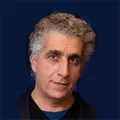Tensions in Iraq may be dominating the headlines, but there are complex patterns of division and polarization across the Arab region. When the World Economic Forum polled experts and leaders on the world’s most significant challenges for the Outlook on the Global Agenda 2014 (now available in Arabic), rising societal tensions and polarization in the Middle East and North Africa came out top.
A society is defined as “polarized” when it splits into sizeable groups, each alienated from the others. A close analysis of the World Value Survey (2010-2014) reveals an Arab region that is more divided than the rest of the world along four crucial axes: life satisfaction and feeling of control, meaning and practice of religion, levels of social and personal trust, and government redistribution policies.
In countries such as Egypt, Morocco and Tunisia, life satisfaction and feeling of control over one’s life is unevenly distributed, more so than almost anywhere else in the world.
Equally, Arab countries vary in their levels of social and personal trust. In particular, Tunisia, Algeria, Morocco and Jordan stand out from the rest of the world. In other countries where personal trust is low, such as Sweden or Poland, social trust tends to be high, thus creating some equilibrium – but this is not the case in these transitional Arab countries.
Read the rest of this article at the World Economic Forum blog here.
Diwan, Ishac. “Democracy and division in the Arab world.” June 12, 2014


